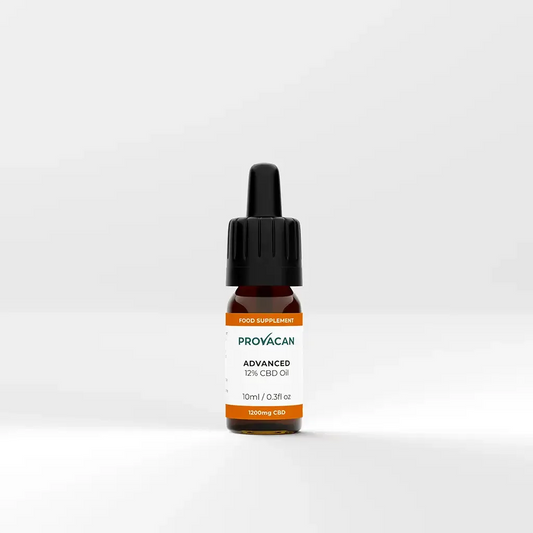Are you looking for ways to improve your eating habits? Many people are turning to CBD as a way to control their eating habits, particularly those with eating disorders. In this blog post, we’ll explore how CBD may help your eating habits and whether it can help control eating disorders. We’ll look at how CBD affects appetite, stimulates healthy eating patterns, and improves overall wellness. We’ll also discuss the potential risks and side effects associated with using CBD for eating disorders.
What is CBD?
CBD, or cannabidiol, is a compound derived from the cannabis plant that has gained popularity for its potential health benefits. Unlike THC, another component of the cannabis plant, CBD does not have any psychoactive properties, meaning it does not produce a “high” when consumed. In recent years, many studies have been conducted to determine how CBD may help alleviate symptoms of various medical conditions, such as pain, anxiety, and inflammation. Additionally, research suggests that CBD may have a role in helping people regulate their eating habits and potentially control eating disorders.
CBD is available in many forms, including CBD oils, CBD tinctures, edibles, and topical creams. It is important to note that CBD products are not approved by the Food and Drug Administration (FDA). Therefore, it is essential to do your own research before using any CBD product and consult with a doctor or health care professional if you have any questions.
How Does CBD Affect Appetite?
CBD is believed to affect appetite in various ways. Studies have shown that it can interact with the body’s endocannabinoid system, a regulatory system that plays a role in controlling appetite, as well as other functions such as mood and stress levels.
CBD may affect appetite in different ways for different people. For some, it may cause a decrease in appetite, while for others it may increase it. CBD may also help people eat less by promoting feelings of fullness, which can help reduce food cravings.
The way in which CBD affects appetite is complex, but there is evidence to suggest that it can play a role in regulating eating patterns. For example, research has shown that CBD may reduce binge eating by reducing compulsive cravings and lowering levels of hunger hormones.
In addition, CBD may be beneficial for people suffering from eating disorders, such as anorexia nervosa and bulimia nervosa. Studies have indicated that CBD can help reduce anxiety, which is often associated with disordered eating, and it may also help reduce compulsive behaviour associated with these conditions.
Does CBD Stimulate Healthy Eating Patterns?
CBD works by interacting with the endocannabinoid system, which is responsible for regulating appetite and hunger. Studies have shown that CBD may act on cannabinoid receptors in the brain, which can help to reduce food cravings and improve appetite control. Furthermore, some studies have also suggested that CBD may have anti-anxiety effects, which could help to reduce emotional eating.
It’s important to note that CBD is not a substitute for therapy or medication prescribed by a doctor for treating eating disorders. However, it may be able to help people who struggle with disordered eating in managing their cravings and eating habits. Additionally, some studies suggest that CBD may help reduce the severity of symptoms related to eating disorders. If you are considering using CBD for eating disorders, it’s important to speak with your doctor first.
How Might CBD Improve Overall Wellness?
CBD may have the potential to improve overall wellness in a variety of ways. For starters, CBD can act as an anti-inflammatory, which could help reduce inflammation throughout the body.
CBD has been linked to helping relieve symptoms of anxiety and depression, which can affect overall wellness if left unchecked. CBD may also reduce the symptoms of insomnia and improve sleep quality, which is crucial for maintaining good physical and mental health. Finally, CBD could potentially help boost the immune system, which could make your body better prepared to fight off illness.
Overall, while more research is needed to fully understand how CBD might improve overall wellness, it appears to have a lot of potential. By reducing inflammation, relieving anxiety and depression, improving sleep, and potentially boosting the immune system, CBD may be able to improve physical and mental health.
Are There Any Risks Associated with Using CBD for Healthy Eating?
When considering adding CBD to your diet, it’s important to understand the potential risks associated with its use. Although CBD is generally considered to be a safe substance with minimal side effects, it is still important to be aware of potential interactions and reactions.
Some people may experience an allergic reaction to CBD, resulting in skin rashes, breathing difficulty, or swelling. It is also possible for CBD to interact with certain medications, so be sure to consult your doctor before taking it if you are currently taking any medications.
It is also important to consider the source of the CBD product you are using. Quality is essential, as low-quality products may contain harmful substances like heavy metals, pesticides, and solvents. Do your research and make sure that you are purchasing from a reputable source.
Finally, it is important to be mindful when dosing with CBD. Start with a small dose and increase gradually until you find the amount that works best for you. Be sure to keep track of any changes in your body while taking CBD and talk to your doctor if you experience any concerning side effects. By understanding the potential risks associated with using CBD for healthy eating, you can take steps to ensure that you are taking the best care of your health and wellbeing.
CBD may offer some promising benefits for healthy eating, particularly when it comes to appetite control and stimulating healthy eating patterns. CBD’s anti-inflammatory and anti-oxidative qualities may help protect against metabolic and digestive issues that can contribute to unhealthy eating habits. It may also be beneficial in helping to manage eating disorders by reducing stress levels, improving emotional wellbeing, and promoting relaxation.
























